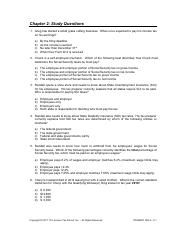

Learn more about the Wiesen test> Ramsay MAT (Mechanical Aptitude Test) The two main differences from the Bennett Test are the number of questions – 60 questions to be solved in 30 minutes, and the drawings which are much more simplistic than in the BMCT. It deals with roughly the same topics as the Bennett test and holds the same format of multiple-choice questions with answers A,B and C. Learn more about the Bennett Test> WTMA (Wiesen Test of Mechanical Aptitude) The questions in the test will always have one or more pictures showing some physical scenario and a question about it, with 3 possible answers, A, B and C. Its current version II contains 55 questions to be solved in 25 minutes, although some employers still use the old pen-and-paper version I of 68 questions to be solved in 30 minutes. The most common mechanical tests in the United States are: BMCT (Bennett Mechanical Comprehension Test) However, if you do not know which test you will be taking, or if a practice pack for the specific test is unavailable, it is recommended to work your way through the general mechanical pack, learning the physical principles which are the key for success in any mechanical aptitude test. For instance, if you are headed towards an apprenticeship, it will be wise to focus some more on topics such as gears and pulleys, as these topics are usually more common in pre-apprenticeship tests. Getting familiar with the format of the test in terms of appearance, the number of answer choices and exact topics coverage is what will give you that edge over the competition. Therefore, time is an important issue in mechanical aptitude tests. Mechanical aptitude tests are usually 20-25 minutes long.
#FF MOD A TEST QUESTIONS FREE#
Want to get a glimpse? Check out our free sample test.Īs I've mentioned before, it is always better to practice the actual test you will be taking. However, it does not contain mechanical aptitude questions, but math and verbal reasoning. The very popular Electrical Aptitude Test for electrician apprentices is often regarded as a mechanical aptitude test. These tests also appear as sections in pre-apprenticeship tests such as the EIAT for elevator technicians and the Industrial Skills Test for various industrial professions. Some of these subjects are more common than others and are therefore more important to master in order to succeed. Examples for topics include gears, fluid mechanics, pulleys, thermodynamics (heat transfer), etc.

Mechanical tests contain questions on several topics. The questions in these tests will usually contain one or more images and a multiple-choice question with 3-4 possible answers.

Basic mechanical knowledge is your ability to understand basic physical principles and apply them to various scenarios. Mechanical aptitude tests (also known as mechanical reasoning or comprehension tests) assess your basic mechanical knowledge.


 0 kommentar(er)
0 kommentar(er)
